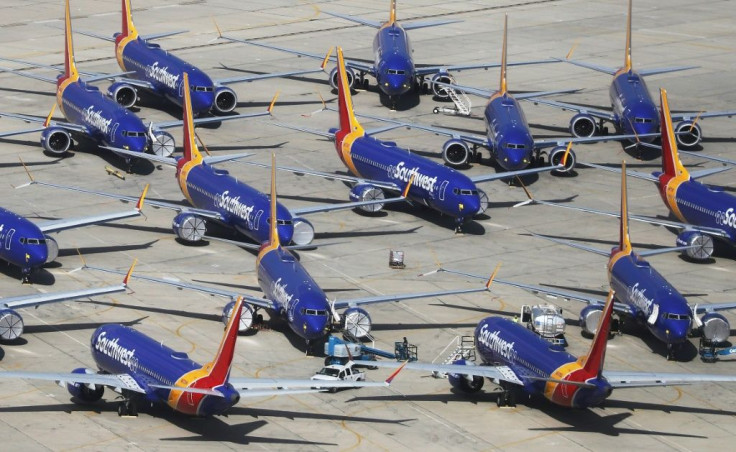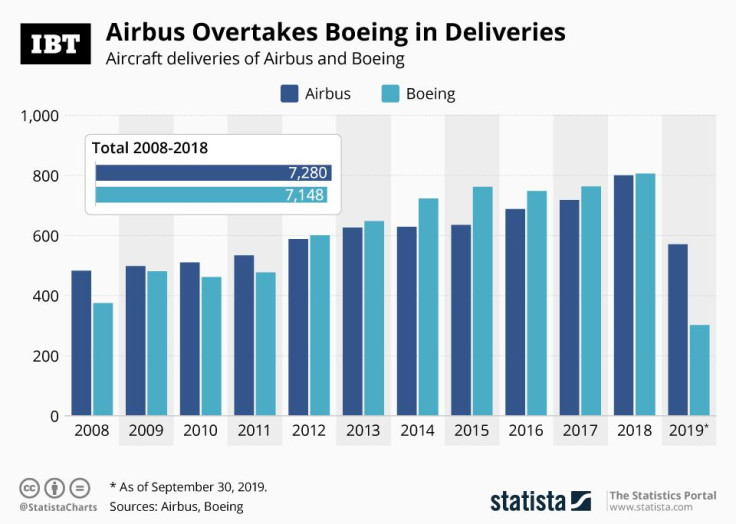FAA Upends Boeing's Plans On 737 Max Return With Vow To Ramp Up Oversight Of Jets

Boeing's plans to return its once-best selling 737 Max jets to the skies soon have suffered another setback after the FAA said Tuesday it "will not approve the aircraft for return to service until it has completed numerous rounds of rigorous testing" and that the agency will certify individual planes as they roll off the assembly line.
A source working with the aviation regulator on the project told International Business Times that there is a "severe lack of trust" between the FAA and Boeing. The source spoke under the condition of anonymity because of the sensitive nature of the situation. "It is very unclear when the FAA will feel comfortable enough to certify the aircraft again. (Boeing) were under a time crunch and placed software with inherent issues on planes," the source said.
The FAA said in its statement, "The FAA has not completed its review of the 737 Max aircraft design changes and associated pilot training. The agency will not approve the aircraft for return to service until it has completed numerous rounds of rigorous testing."
“The FAA notified Boeing today that the agency will retain authority over the issuance of Airworthiness Certificates for all newly manufactured 737 Max aircraft,” the agency added. Usually, the FAA would certify a specific design and plane type, and it would fall on the manufacturer to certify each plane rolling off the assembly line. Now, the FAA says it will have to certify each plane as it is made.
Aviation industry website The Air Current said quoting a source that there is a "slight and decreasing" chance that the regulator will clear the jet for commercial flights before end-December. The company, however, told CNBC that it has not changed its outlook for returning the jets to commercial service by the end of January.
The 737 Max planes have been grounded worldwide since March after two crashes within five months killed 346 people. The cause of those crashes was determined to be a software system, the MCAS, which malfunctioned and sent the jets into their death dives, giving pilots very little time to regain control. Boeing has been working on a fix for the software since.
After recent reports that Boeing had pressured the FAA to speed up the certification process, FAA chief Stephen Dickson pushed back with a video to staff on Nov. 15, encouraging them to resist pressures. He did not name Boeing but said, "I've got your back."
Boeing had expected to begin delivering new planes to airline customers in December before the aircraft was certified to fly passengers again, but questions remain on the willingness of airlines to take delivery of an aircraft that cannot carry passengers, a report by Business Insider said.

This ordeal has caused Boeing to lose the title of best-selling aircraft to its rival Airbus' A 320. Airbus also overtook Boeing in terms of the number of civil aircraft delivered so far this year.
Beyond the assembly line, though, this signifies a massive problem for Boeing. The company that was once known as an engineering-based industry leader that turned out fantastic aircraft with minimal problems has suffered a considerable setback to that image. It has been blamed for "regulatory capture," which allowed the FAA to hand over most of the certification process of the 737 Max to the planemaker. It was also reported that the company and its subcontractors relied on temporary workers making as little as $9 an hour to make and test the Max software.
The company's board on Oct. 11 stripped Dennis Muilenburg of the chairman title -- replacing him with David Calhoun -- even as he was kept on as CEO and as a member of the board.
Adding to Boeing's worries, several national regulators have indicated that they would want to certify the Max again to fly in their skies after an FAA certification. That portends a lengthy and costly process ahead for Boeing.
It now seems pretty clear that Boeing will be under some tight scrutiny from regulators worldwide until they can provide a real fix to the problem.
© Copyright IBTimes 2025. All rights reserved.






















